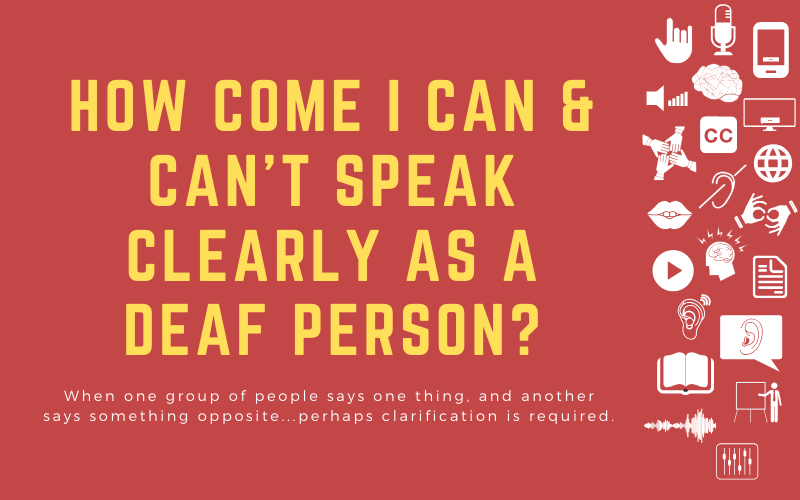
Deafness is a condition that affects a person's ability to hear. It can be caused by many factors, including genetics, illness, injury, or exposure to loud noises. People who are born deaf or become deaf at a young age often have difficulty developing spoken language. In this article, we will explore the reasons why deaf people can't speak.
The Importance of Hearing in Language Development

Hearing plays a critical role in language development. When babies are born, they begin to learn language by listening to the sounds around them. They listen to their parents, siblings, and other people speaking, and they start to imitate the sounds they hear. This process is known as language acquisition.
Deaf children, however, do not have the ability to hear these sounds. They are unable to listen to others speaking and cannot imitate the sounds they hear. As a result, they have difficulty developing spoken language.
The Challenges of Learning to Speak

Deaf children face many challenges when it comes to learning to speak. They cannot hear the sounds that make up words, so they have difficulty understanding how words are pronounced. They also have difficulty hearing their own voices, which makes it hard for them to adjust their speech.
In addition, deaf children often have difficulty with the rhythm and intonation of spoken language. They may speak with a monotone voice and have trouble with inflection and stress. This can make it hard for others to understand them.
The Role of Sign Language

Sign language is a visual language that uses hand gestures, facial expressions, and body language to convey meaning. It is a natural language that is used by many deaf people around the world.
Sign language is important because it allows deaf people to communicate effectively with others. It also provides a way for deaf people to express themselves and to participate in society.
The Benefits of Bilingualism

Many deaf people are bilingual, meaning they are proficient in both sign language and written or spoken language. This is because they often learn to read and write in their native language, even if they do not speak it.
Bilingualism has many benefits for deaf people. It allows them to communicate with a wider range of people and to participate more fully in society. It also helps them to develop cognitive skills and to be more flexible in their thinking.
The Importance of Accessibility

Accessibility is an important issue for deaf people. They need access to information and communication in order to participate fully in society. This includes access to written or spoken language, as well as sign language interpretation and captioning.
Many countries have laws that require accessibility for people with disabilities, including deaf people. These laws ensure that deaf people have equal access to education, employment, and other opportunities.
Conclusion
Deafness can make it difficult for people to develop spoken language, but it does not prevent them from communicating effectively. Sign language is a natural language that allows deaf people to communicate with others and to participate fully in society. With the right support and resources, deaf people can achieve their full potential.